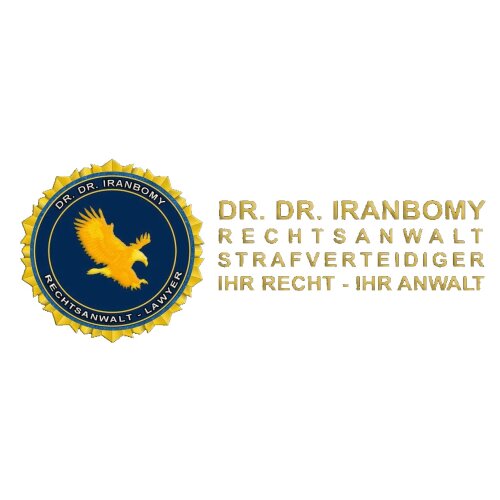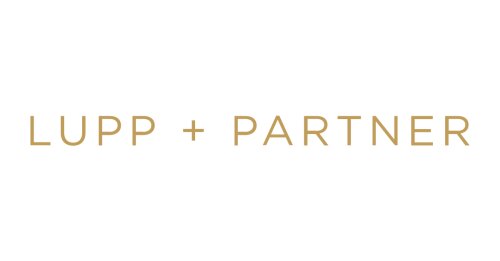Best FDA Law Lawyers in Frankfurt am Main
Share your needs with us, get contacted by law firms.
Free. Takes 2 min.
List of the best lawyers in Frankfurt am Main, Germany
About FDA Law in Frankfurt am Main, Germany
FDA Law is a term commonly used in the United States to refer to the regulation of food, drugs, and medical devices. In Germany, similar laws exist but are governed by a combination of European Union regulations and national statutes. In Frankfurt am Main, a leading center for the pharmaceutical and life sciences industries, compliance with these regulations is crucial for companies and individuals engaged in manufacturing, importing, exporting, or distributing food, medical devices, and pharmaceuticals. Local legal counsel can assist in navigating German and EU-specific requirements, ensuring both business operations and public health interests are maintained.
Why You May Need a Lawyer
Individuals and businesses may require legal advice in FDA Law for a variety of reasons. Common situations include launching a new food product, medical device, or pharmaceutical in the German or European market, ensuring products meet safety standards, interpreting complex regulatory requirements, or addressing product recalls and investigations. Legal assistance is often essential in registration and licensing processes, understanding labeling and packaging rules, and in managing compliance with clinical trial regulations or distribution requirements. If authorities initiate enforcement actions or audits, legal help is crucial to protect your rights and business interests.
Local Laws Overview
In Germany, the regulation of food, drugs, and medical devices is primarily governed by several core pieces of legislation, harmonized in many areas with European Union law. Key laws include the Arzneimittelgesetz (German Medicines Act), the Medizinproduktegesetz (Medical Devices Act), and the Lebensmittel- und Futtermittelgesetzbuch (Food and Feed Code). Additionally, the Pharmakovigilanz (pharmacovigilance) regulations ensure the ongoing monitoring of drug safety. Enforcement and oversight are managed at both the federal level and by local authorities in Frankfurt am Main. Strict liability can attach to manufacturers and distributors for non-compliance, and penalties can include fines, product seizures, or business closures. Maintaining compliance with German and EU labeling, advertising, clinical trials, and post-market surveillance is essential for lawful operation in Frankfurt am Main.
Frequently Asked Questions
What types of products are regulated under FDA Law in Germany?
Food, dietary supplements, pharmaceuticals, cosmetics, and medical devices are all regulated under various German and EU laws similar to the US FDA framework.
Who enforces FDA-type laws in Frankfurt am Main?
The local health authority (Gesundheitsamt) and the Regierungspräsidium work under national oversight to ensure compliance. The Federal Institute for Drugs and Medical Devices (BfArM) and the Federal Office of Consumer Protection and Food Safety (BVL) are also involved in national enforcement.
Do I need to register my pharmaceutical product before selling in Frankfurt?
Yes, all pharmaceuticals and many medical devices must be authorized before being marketed. The process involves rigorous review of safety, efficacy, and quality.
Are food supplements and cosmetic products also regulated?
Yes, food supplements and cosmetics must comply with specific labeling, safety, and marketing regulations, which are overseen by both local and federal agencies.
How are medical devices classified and approved?
Medical devices are categorized according to risk level. The European Medical Device Regulation (MDR) sets out rules for classification, conformity assessment, CE marking, and surveillance.
What are the possible penalties for non-compliance?
Penalties can include fines, seizure of goods, mandatory recalls, suspension of business activities, and in severe cases, criminal prosecution of responsible individuals.
Are clinical trials for new drugs regulated locally?
Yes, clinical trials must be approved by ethics committees and competent authorities such as BfArM. Strict rules govern trial design, participant information, and reporting.
Can I advertise my medical or food products freely?
Advertising is heavily regulated, especially for pharmaceuticals and medical devices. Claims must be substantiated, and certain promotions are prohibited to protect consumers.
What is pharmacovigilance and is it required?
Pharmacovigilance refers to the continuous monitoring of the safety of approved drugs. Manufacturers and distributors are required to have systems in place to report and evaluate adverse events.
Can legal assistance help in getting product approval faster?
A lawyer can help ensure documentation is correct, processes are followed, and regulatory obstacles are addressed quickly, reducing the risk of delays or rejections.
Additional Resources
For further information or support, the following agencies and organizations can be helpful:
- Federal Institute for Drugs and Medical Devices (BfArM)
- Federal Office of Consumer Protection and Food Safety (BVL)
- Local Gesundheitsamt (Health Authority) in Frankfurt am Main
- German Medical Devices Law Implementation Group (DIMDI)
- Chamber of Industry and Commerce Frankfurt (IHK Frankfurt)
- European Medicines Agency (EMA) for EU-wide issues
- German Pharmaceutical Industry Association (BPI)
Next Steps
If you need legal assistance with FDA Law matters in Frankfurt am Main, begin by identifying the specific area of concern-whether it is product approval, compliance, advertising, or response to enforcement actions. Gather all relevant documents and details about your product or query. Contact a legal professional or specialized law firm with expertise in pharmaceutical, food, or medical device regulations. Schedule a consultation to discuss your case, understand your options, and develop a compliance strategy. Acting early will help prevent costly mistakes and ensure your operations align with German and EU regulatory standards.
Lawzana helps you find the best lawyers and law firms in Frankfurt am Main through a curated and pre-screened list of qualified legal professionals. Our platform offers rankings and detailed profiles of attorneys and law firms, allowing you to compare based on practice areas, including FDA Law, experience, and client feedback.
Each profile includes a description of the firm's areas of practice, client reviews, team members and partners, year of establishment, spoken languages, office locations, contact information, social media presence, and any published articles or resources. Most firms on our platform speak English and are experienced in both local and international legal matters.
Get a quote from top-rated law firms in Frankfurt am Main, Germany — quickly, securely, and without unnecessary hassle.
Disclaimer:
The information provided on this page is for general informational purposes only and does not constitute legal advice. While we strive to ensure the accuracy and relevance of the content, legal information may change over time, and interpretations of the law can vary. You should always consult with a qualified legal professional for advice specific to your situation.
We disclaim all liability for actions taken or not taken based on the content of this page. If you believe any information is incorrect or outdated, please contact us, and we will review and update it where appropriate.














